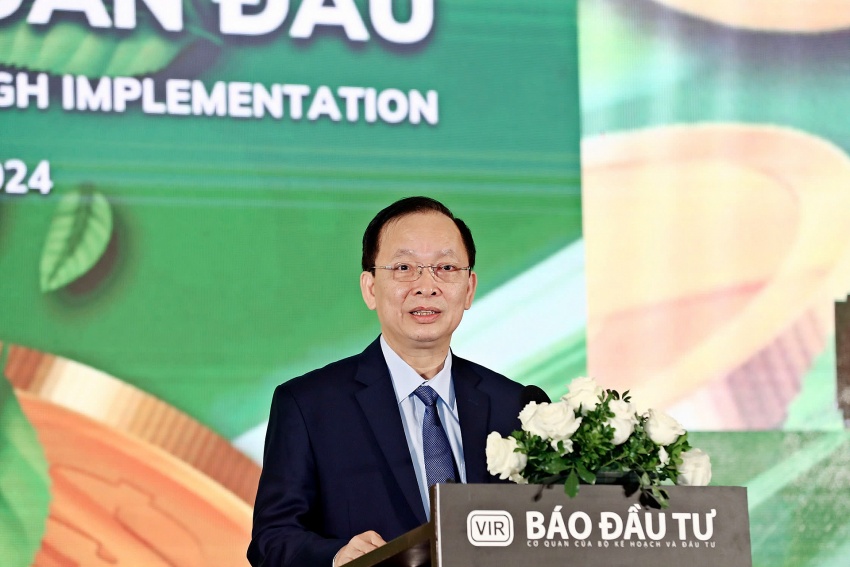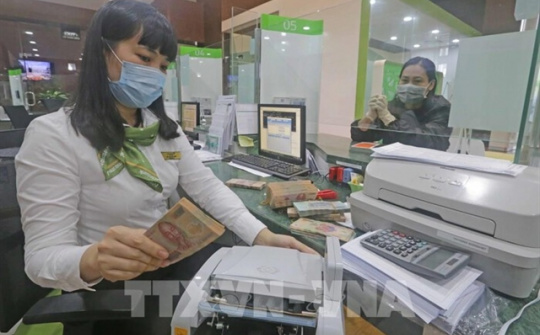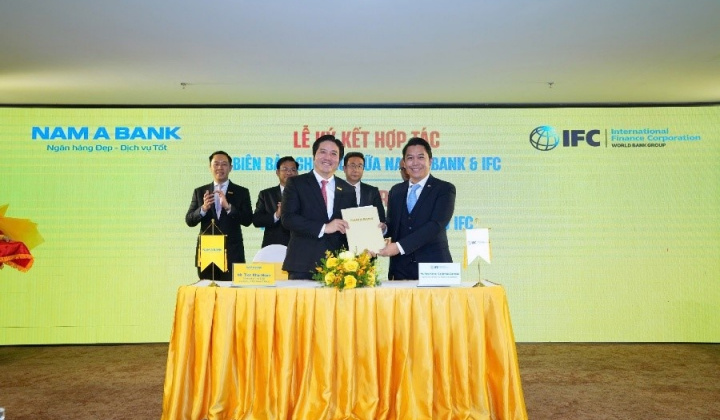At the seminar, “ESG in Banking: Leading through Implementation” hosted by VIR on November 19, Deputy Governor of the State Bank of Vietnam (SBV) Dao Minh Tu emphasised that Vietnam was one of the countries facing significant environmental and social challenges, impacting economic development and the livelihoods of its people. Thus, fostering green growth and sustainable development is a critical and urgent priority, particularly in the banking sector, which serves as the primary capital provider for the economy.

Deputy Governor of the State Bank of Vietnam Dao Minh Tu speech at the conference
In recent years, Vietnam has actively participated in international commitments to environmental protection, green transition, greenhouse gas emission reduction, and human rights promotion, aiming for sustainable and inclusive development. The country pledged to implement the 2030 Agenda for Sustainable Development at the 2015 United Nations Summit, signed the Paris Agreement on Climate Change in 2016, and made a strong commitment at COP26 in 2021 to achieve net-zero emissions by 2050.
“These commitments have laid the foundation for advancing economic instruments to promote green growth and ESG (Environmental, Social, and Governance) initiatives, such as green credit, green bond issuance, and environmental risk management in credit activities of financial institutions. Sustainable growth is, therefore, a cornerstone for enhancing both national and corporate competitiveness in the context of global integration, with ESG serving as a benchmark for measuring and evaluating corporate sustainability,” said Deputy Governor Tu.
For the banking sector, embracing ESG principles requires financial institutions to consistently implement, comply with, and adapt to evolving regulations and policies to fulfill environmental and social responsibilities. On the other hand, adopting ESG standards enhances the credibility and brand value of financial institutions by improving transparency and disclosures related to governance, environmental, and social issues.
“Furthermore, as we have observed, environmental and social risks are not isolated but interconnected with institutional risks, including credit, market, liquidity, strategic, and reputational risks,” Tu noted. “Practising ESG helps financial institutions strengthen risk management, improve operational efficiency and profitability, and access new markets, international capital flows, and technical support from global financial organisations while advancing innovative credit products.”
Deputy Governor Tu highlighted that the banking sector has been a pioneer in adopting ESG standards.
The SBV has introduced various policies, directives, and guidance related to ESG in banking activities focused on promoting green credit and managing environmental risks in credit activities; the National Strategy on Green Growth for 2021–2030; and environmental risk management in credit activities.

Overview of the conference
“These proactive measures demonstrate the banking sector's commitment to ESG practices, contributing to green and sustainable growth goals while raising awareness and enhancing the capacity of businesses that rely on banking resources to comply with environmental and social responsibilities,” Tu said.
“Under the SBV's guidance, the implementation of ESG has seen tangible improvements, from awareness to action. Financial institutions have proactively integrated environmental and social factors into their development strategies and business models, improved organisational structures, managed environmental and social risks in credit activities, advanced digital transformation efforts, and actively sought international partnerships for technical and financial support.”
ESG progress in the banking sector is reflected in the growth of loans assessed for environmental and social risks. By September 30, these loans exceeded $133.33 billion, accounting for over 22 per cent of total outstanding loans in the economy, a 15.62 per cent increase compared to the end of 2023, outpacing the overall credit growth rate.
As Vietnam deepens its integration into global supply chains and strengthens international commitments on environmental and social responsibilities, the practice of ESG in both banking and corporate activities is becoming increasingly urgent. Despite opportunities and better conditions for ESG implementation, challenges remain for both regulatory authorities and executing entities.
Representing the SBV, Deputy Governor Tu expressed confidence that this seminar would provide valuable insights for regulators, businesses, investors, and particularly financial institutions, raising awareness across the banking sector and society about ESG adoption in Vietnam.
“This event serves as a platform to connect various stakeholders, including banks, enterprises, experts, regulators, and related organisations, to share knowledge, experiences, and practical insights, thereby enhancing ESG implementation in Vietnam, especially in the banking sector, in line with international best practices,” Tu said.




















